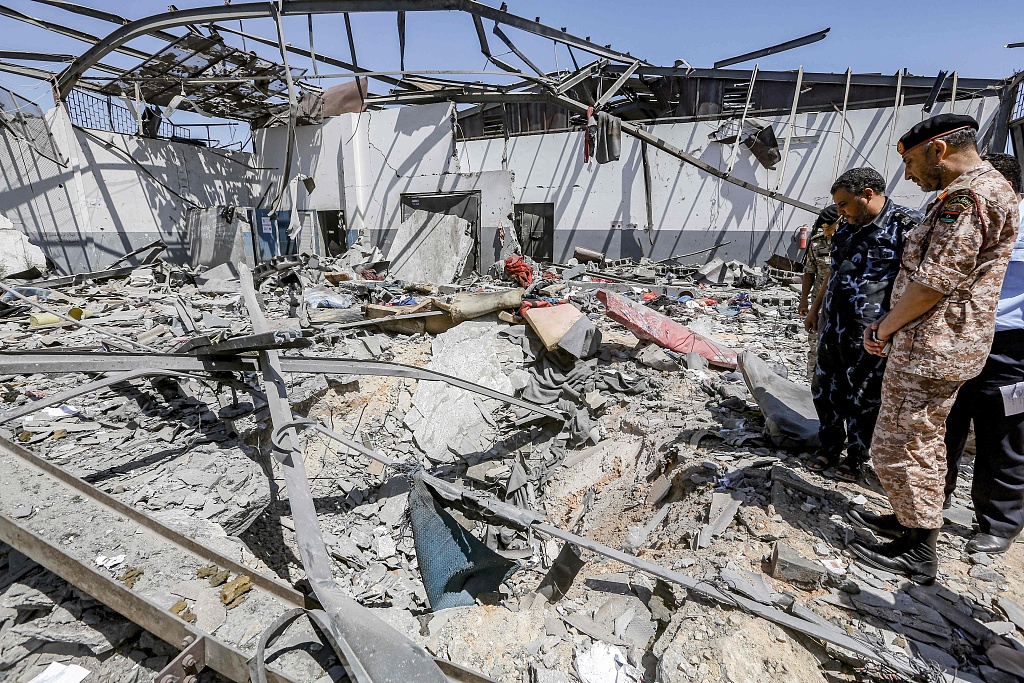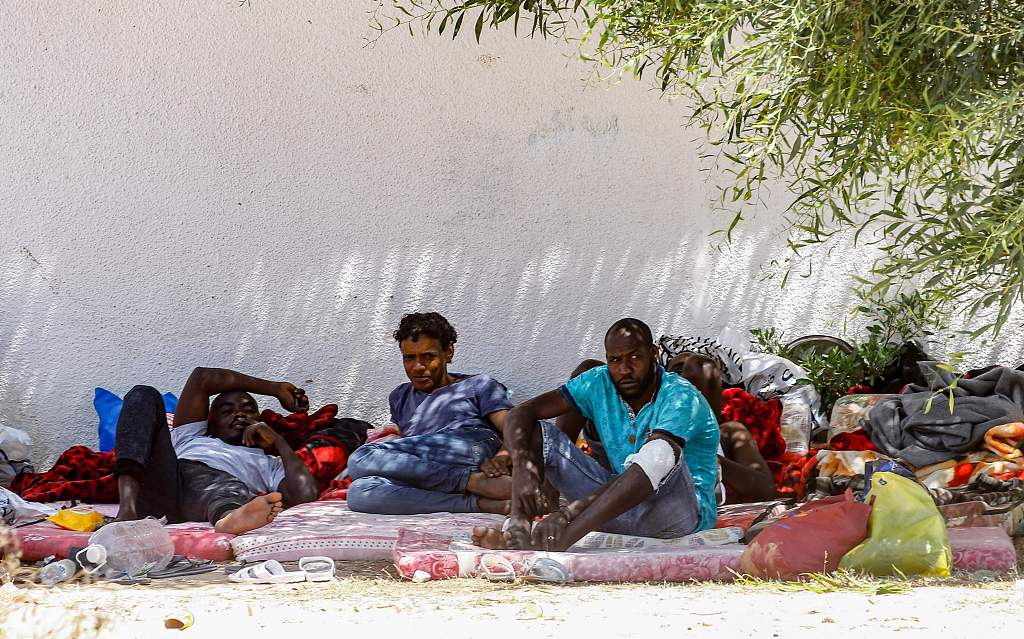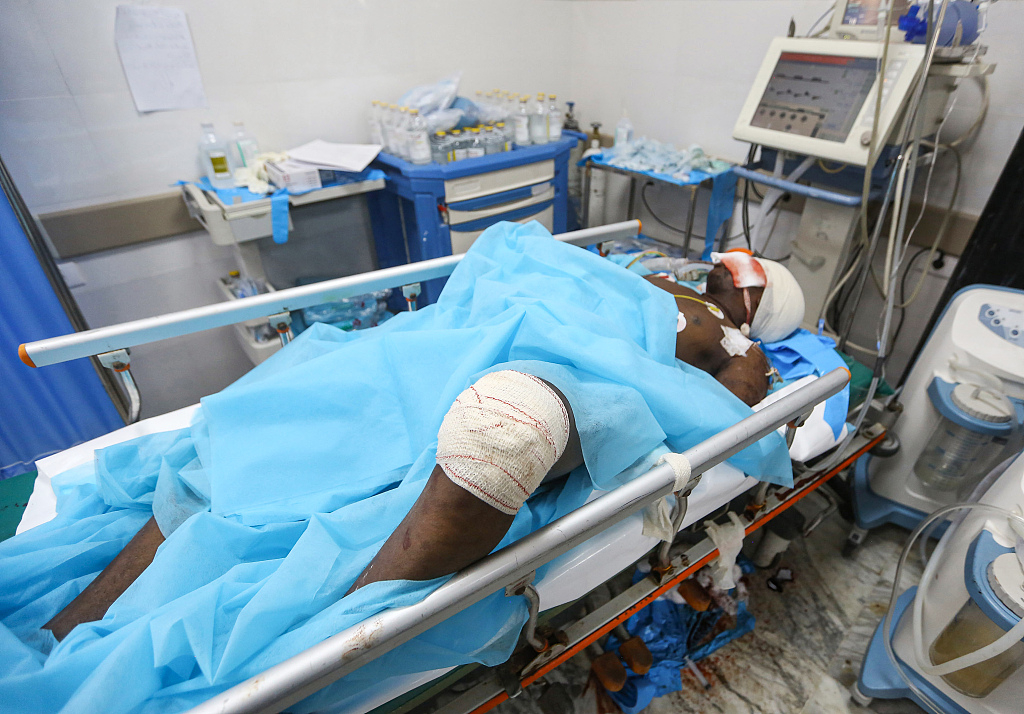

Military officers of the Libyan Government of National Accord (GNA) inspect damage and debris at the migrant detention centre, following an air strike on a nearby building, Tajoura, Libya, July 3, 2019. /VCG Photo
The United Nations Security Council on Friday condemned a deadly air strike on a migrant detention center in Libya, called for the warring parties to commit to a ceasefire and urged other countries not to intervene or exacerbate the conflict.
The 15-member council met on Wednesday after the attack late on Tuesday killed at least 53 people, including six children.
But it was unable to quickly issue a statement, which needs consensus, because the United States could not agree to it, diplomats said. Diplomats said the statement issued on Friday was largely unchanged from the language discussed on Wednesday.
"The members of the Security Council stressed the need for all parties to urgently de-escalate the situation and to commit to a ceasefire," the statement read. "Lasting peace and stability in Libya will come only through a political solution."

Migrants lie on mattresses outside a detention center in the capital Tripoli's southern suburb of Tajoura, following an air strike on a nearby building that left dozens killed, July 3, 2019. /VCG Photo
The migrant center attack marked the highest publicly reported toll from an air strike or shelling since eastern forces under Khalifa Haftar launched a ground and aerial offensive three months ago to take the capital Tripoli, which is the base of Libya's internationally recognized government.
The UN Security Council has struggled to unify on how to deal with the renewed violence. Shortly after Haftar began his offensive, the United States and Russia both told council colleagues that they could not support a resolution that would have called for a ceasefire in Libya.
Chaos has prevailed in the oil- and gas-producing North African country since the NATO-backed overthrow of leader Muammar Gaddafi in 2011.
The renewed conflict threatens to disrupt oil supplies, spur migration across the Mediterranean to Europe, scupper UN plans for an election to resolve the rivalry between the parallel administrations in east and west, and create a security void that Islamist militants could fill.
The warring parties both enjoy military support from regional powers. Haftar's forces have been supplied for years by the United Arab Emirates and Egypt, while Turkey recently shipped arms to Tripoli to stop Haftar's assault, diplomats say.

An injured migrant lies on a hospital bed in a hospital in the capital Tripoli following an air strike on a nearby building that left dozens killed, July 3, 2019. /VCG Photo
"The members of the Security Council called for full respect for the arms embargo by all member states," the statement read, and "called on all member states not to intervene in the conflict or take measures that exacerbate the conflict."
Libya is also one of the main departure points for African migrants fleeing poverty and war to reach Italy by boat, but many are intercepted at sea and brought back by the Libyan coast guard, with the approval of the European Union.
The Security Council "expressed deep concern over the worsening humanitarian situation in Libya, and called on the parties to allow full access for humanitarian agencies. It also said it was "concerned about the conditions in the detention centers which are the responsibility of the Libyan Government."
Some 6,000 are held in government-run detention centers in what human rights groups and the United Nations say are often inhumane conditions.

Copyright © 2018 CGTN. Beijing ICP prepared NO.16065310-3
Copyright © 2018 CGTN. Beijing ICP prepared NO.16065310-3